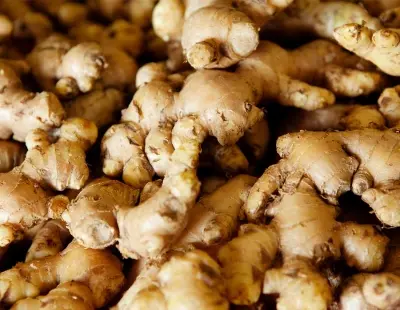Increasing consumer awareness about the health properties and taste of ginger, its widespread use in the food industry, and the improvement of international trade and transportation infrastructure could have contributed to the growth of this market

Ginger, as one of the most popular and popular spices, has an important position and rank in the global spice trade market. The global ginger market (fresh and dry ginger) has grown significantly in recent years. India, Nigeria, China and Thailand are among the countries that produce ginger on a large scale. These countries provide high-quality ginger production in significant quantities. Ginger has a strong demand from consumers all over the world due to its flavoring, aromatic and health properties. Ginger is used as a popular spice in the Food industry and is also used in the preparation of beverages, baking products, confectionery and nutritional supplements. Considering the increasing consumption of ginger in various industries and the ever-increasing demand of consumers, the global ginger market has the potential to grow and develop more in the future. Studies show that ginger will be noticed as a health product and spice and the demand for it will increase.
Due to the increasing demand, the global ginger market has grown significantly in recent years. Increasing consumer awareness about the health properties and taste of ginger, its widespread use in the food industry, and the improvement of international trade and transportation infrastructure could have contributed to the growth of this market. Limitations such as the impact of climate change on productivity, diseases and pests may be some of the challenges of the ginger market. Also, trade regulations, export and import restrictions, exchange rates and economic conditions can also have an impact. India is one of the largest exporters of ginger in the world. In addition to India, countries such as Thailand, China, Nepal and Brazil also have significant ginger exports. In some countries, the domestic consumption of ginger is also high and imports are also made.
The price of ginger in the world market is affected by several factors. Factors such as supply and demand, weather conditions, cultivation conditions, exchange rates and trade regulations are influential. Changes in the price of ginger usually occur throughout the year. Ginger is one of the most important and popular Spices in the world market and has an important place in the spice trade. This rank and position has been achieved due to the properties of ginger, its wide uses and strong demand from consumers. Ginger is widely used as a popular spice in food and cooking industries. The excellent taste and aroma of ginger and its health properties have made it one of the most popular spices in the preparation of Foods and drinks. India, Nigeria, China and Thailand are among the largest producers of ginger in the world. These countries provide high-quality ginger production in significant quantities. As mentioned, India is known as the largest exporter of ginger in the world.
Ginger is used in many food industries such as beverages, baking products, confectionery, Meat products, food supplements, juices and preserves. This multiplicity of uses of ginger plays an important role in its position in the spice business. Ginger has many health properties, including anti-inflammatory, antiseptic, anti-nausea, strengthening the body's immune system and improving digestive function. These health properties of ginger increase its demand and strengthen its position in the spice business. Ginger is used as a natural additive in the production of beverages such as juices, soft drinks, energy Drinks and teas. Adding ginger to drinks can improve their taste and aroma and increase their health properties.
Ginger is used as a popular spice in the preparation of sweets and cakes. This spice can add more depth and variety to the taste and aroma of sweets and make them stand out. Ginger is used as a main spice in sauces, dressings, marinades and fermented grains such as bread and biscuits. This spice can add more depth and flavor to foods and make them more diverse and delicious. Ginger is used as an additive in the preparation of meat products such as sausages and sausages. This spice can add more depth and variety to the flavor and aroma of meats and improve them. Ginger is used in the preparation of sweet products such as chocolate, ice cream and candies. Adding ginger to these products can give them a unique flavor and aroma and improve the consumption experience.
Some countries may have special restrictions and regulations for the export and import of ginger. These restrictions can include quantitative restrictions, import/export licensing, sanitary and phytosanitary restrictions, and other international trade regulations. Therefore, before starting to trade ginger, it is important to check the relevant laws and regulations in the country of destination or source of ginger. In many cases, there are certain quality standards for the export and import of ginger. These standards can include restrictions on the moisture level, size, shape, color and appearance integrity of ginger. In addition, health standards may also be among the standards required for the import and export of ginger. Labeling and packaging rules are also important in the international trade of ginger. The packaging should be such that the ginger is protected and not damaged during transportation. Also, the labels should contain the necessary information about the content, weight, country of manufacture and other relevant information.




